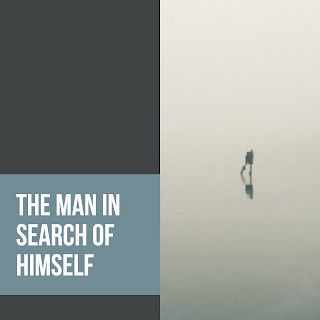THE MAN IN SEARCH OF HIMSELF
I
present to friends readers of the blog an excerpt from my book (ebook),
published in amazon.com.br, The Man In Search of Himself - Reflections on the
Human Condition in the Parable of the Prodigal Son.
Banished
from his original world, man desperately seeks to find himself. He does not
know what or who he is, he feels himself "a synthesis of infinity and
finite, temporal and eternal, freedom and necessity... it's not just a simple
animal creature... but also a spirit" [1]. This is the complex nature of
man: matter united with a spirit and, even more, a fallen spirit.
Because
of the Fall, the human being is a shapeless being, a synthesis of darkness and
light, of hatred and love, of violence and meekness, of profane and holy. It's
a deteriorated work of art. It's beautiful, but the damage in it steals its
glory. This indefinition makes him incomprehensible to himself and, therefore,
seeks to define himself in a being of his creation.
Blase
Pascal, in his work Thoughts, wrote: "the human creature is but a fabric
of contradictions, an indissoluble mixture of rascality and greatness, a being
worthy, at the same time, of contempt and love and honor. A being eternally in
conflict with himself..." [2].
Is
this a negative view of the human being? No, it's the post-Fall reality, the
effect of his separation from the one that created it. The Apostle Paul, in
writing to the Romans, said: "There is no righteous, not even one... for
all have sinned and fall short of the glory of God..." (Romans 3:10,23).
It
is a fact that the human being looks at himself and sees that his self is
undefined, a mixture of corruption and perfection. So he seek to recreate
himself in a new self that will bring him happiness. This will involve the
formation of an image pleasing to himself and others, as well as the
performance of roles that give him admiration, recognition and meaning for
life.
Pascal
explained this human need: "we are not content with the life we have in
ourselves and in our own being; we want to live an imaginary life in the
imagination of others and, to do so, we strive to pretend. We work incessantly
to preserve and beautify our imaginary being, neglecting the true ... the great
mark of the emptiness of our own being is not to be satisfied with one without
the other and to exchange often for one another" [3].
Antônio
Maia - M. Div.
Copyright
[1]
KIERKGAARD, Sören. O Desespero Humano. Ed Martin Claret, São Paulo - SP,
2001, p.19,57
[2]
PASCAL, Blaise. Pensamentos. Ed Abba Press, São Paulo, 2002, p.25
[3]
PASCAL, Blaise. Pensamentos. Ed Abba Press, São Paulo, 2002, p.86



Comments
Post a Comment